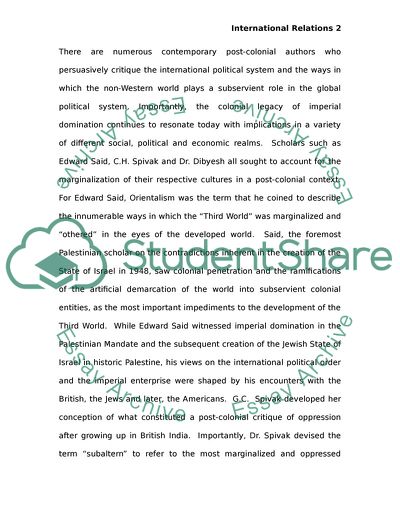Cite this document
(Western Ways of Thinking and Acting Research Paper, n.d.)
Western Ways of Thinking and Acting Research Paper. Retrieved from https://studentshare.org/politics/1732749-does-international-relations-theory-privelege-western-ways-of-thinking-and-acting
Western Ways of Thinking and Acting Research Paper. Retrieved from https://studentshare.org/politics/1732749-does-international-relations-theory-privelege-western-ways-of-thinking-and-acting
(Western Ways of Thinking and Acting Research Paper)
Western Ways of Thinking and Acting Research Paper. https://studentshare.org/politics/1732749-does-international-relations-theory-privelege-western-ways-of-thinking-and-acting.
Western Ways of Thinking and Acting Research Paper. https://studentshare.org/politics/1732749-does-international-relations-theory-privelege-western-ways-of-thinking-and-acting.
“Western Ways of Thinking and Acting Research Paper”, n.d. https://studentshare.org/politics/1732749-does-international-relations-theory-privelege-western-ways-of-thinking-and-acting.


